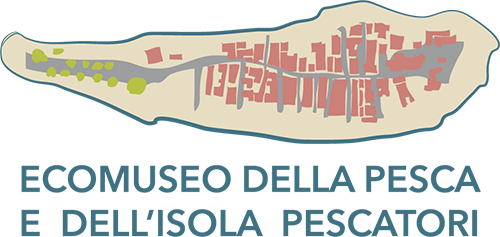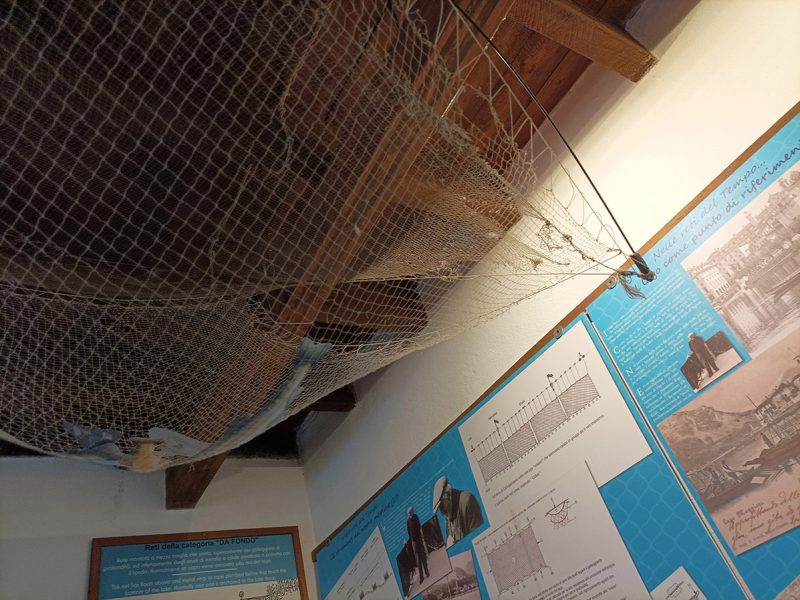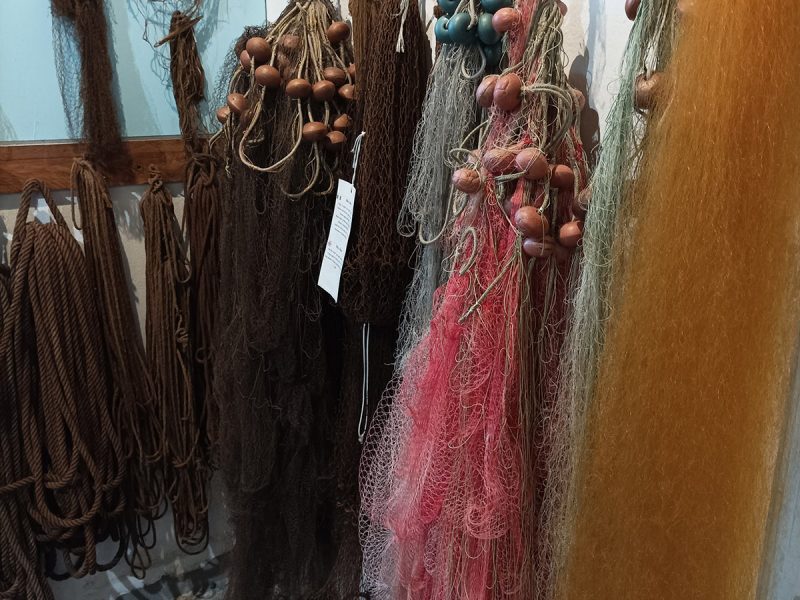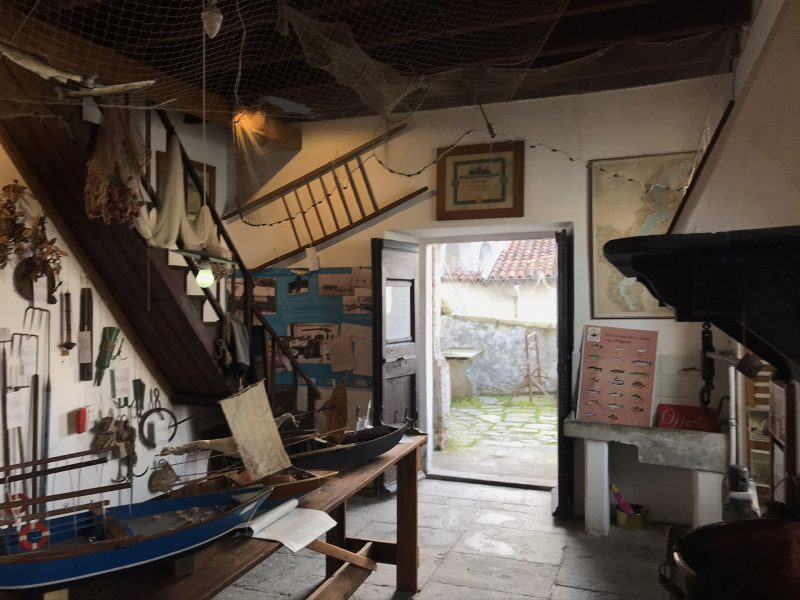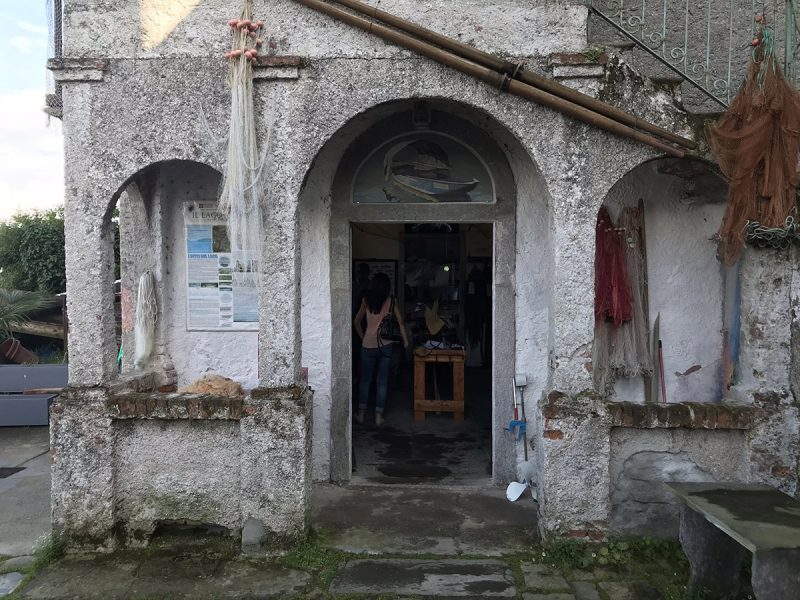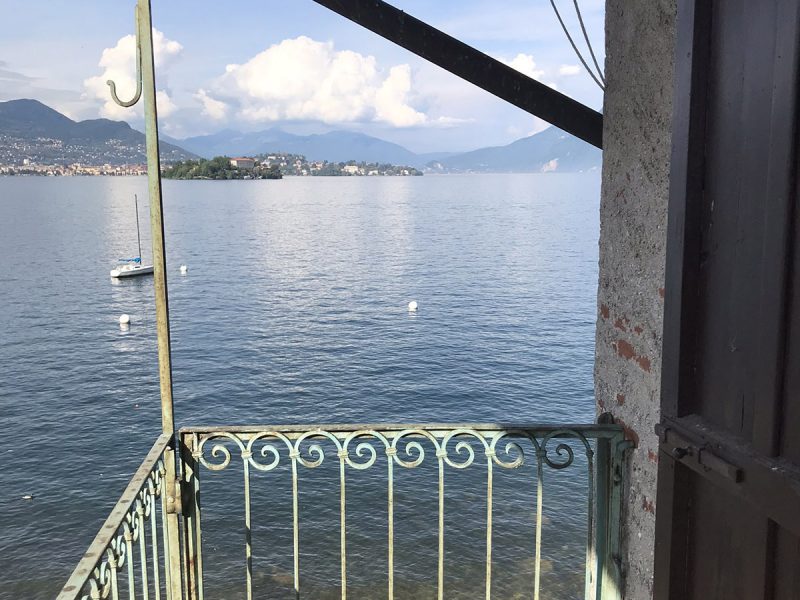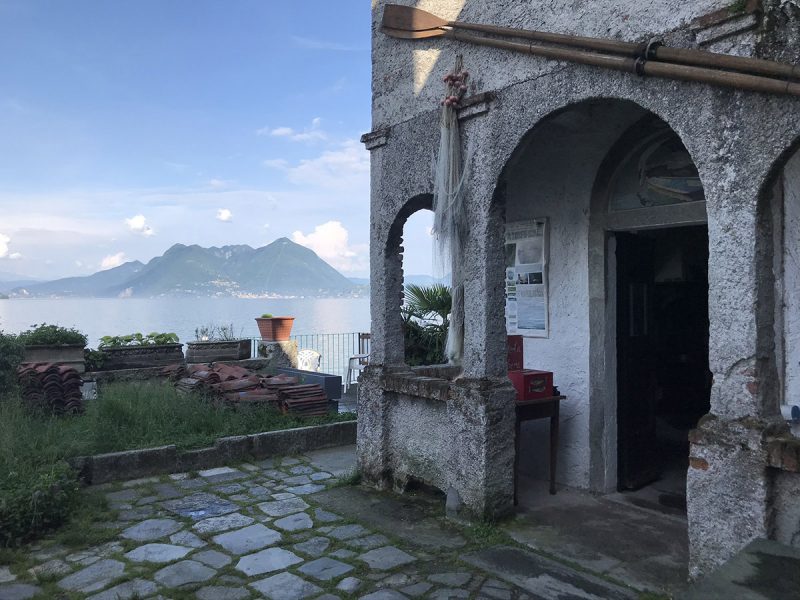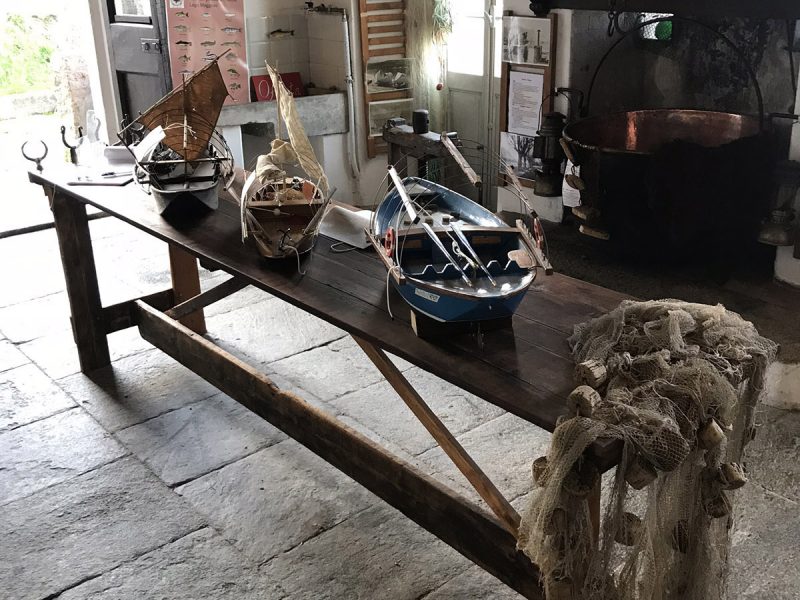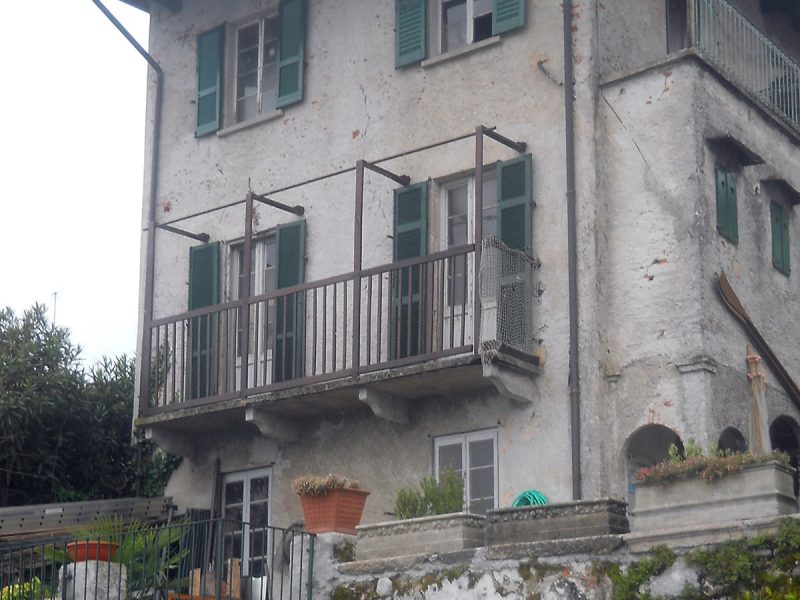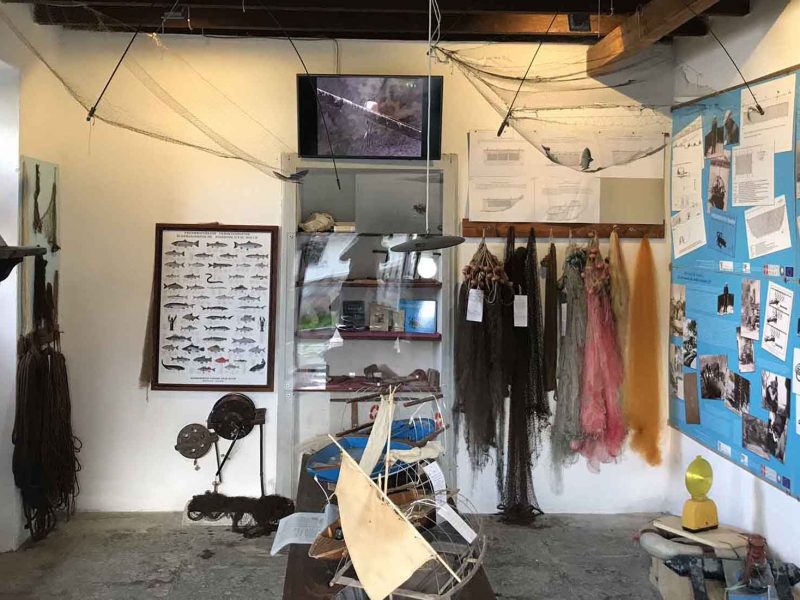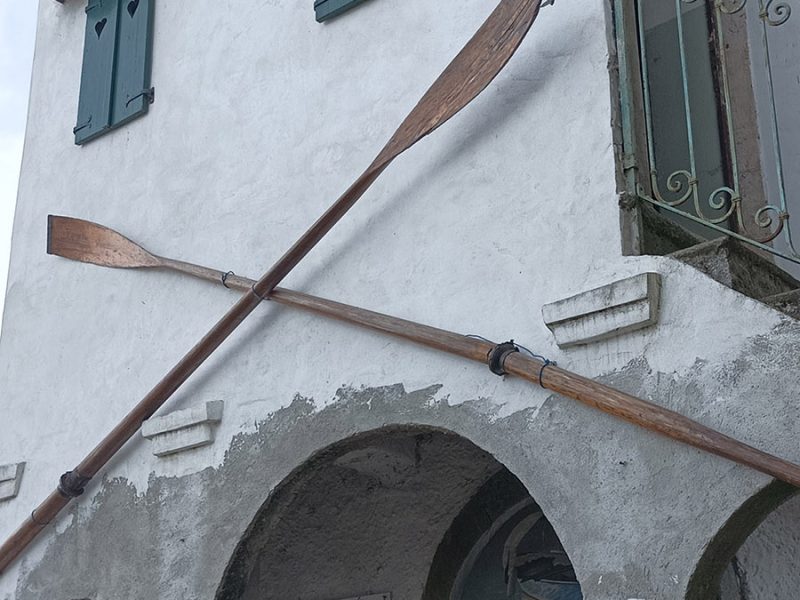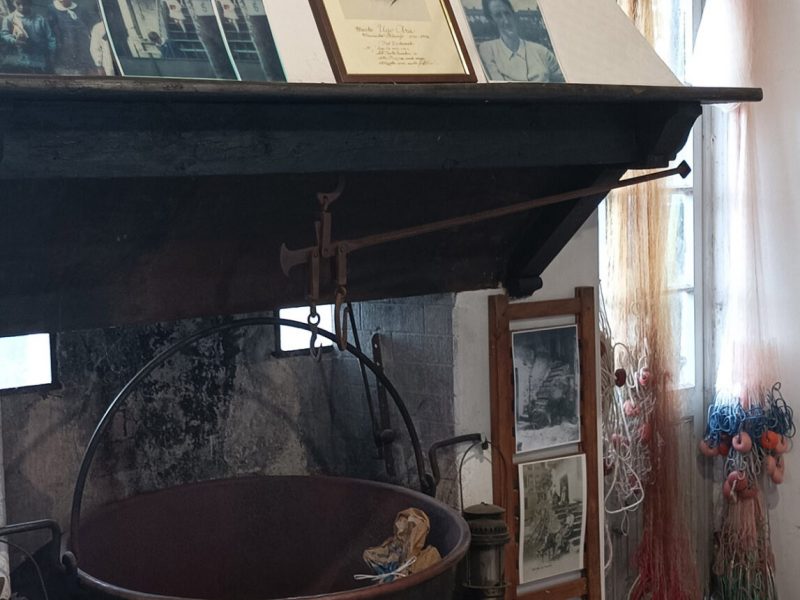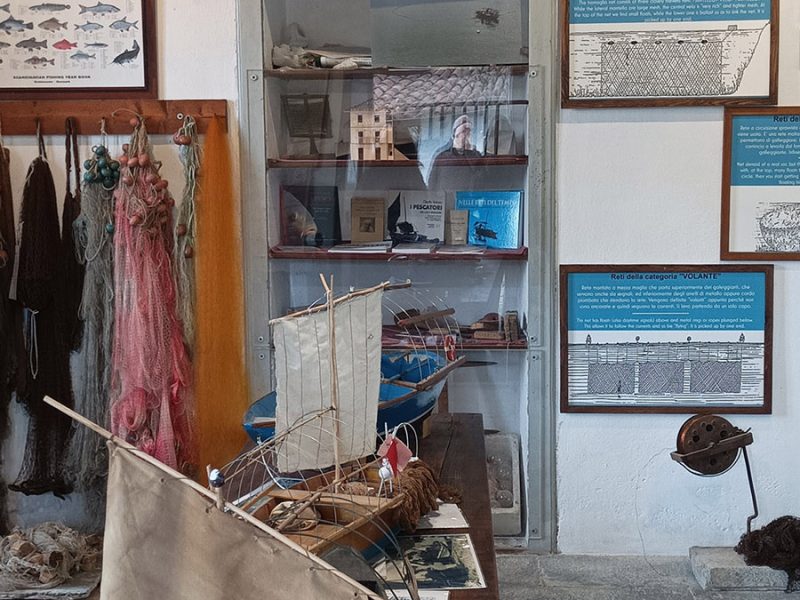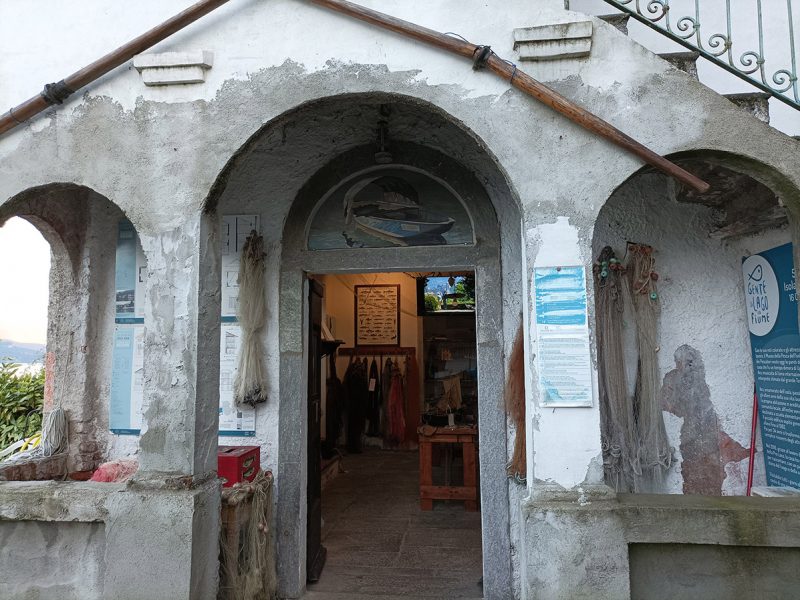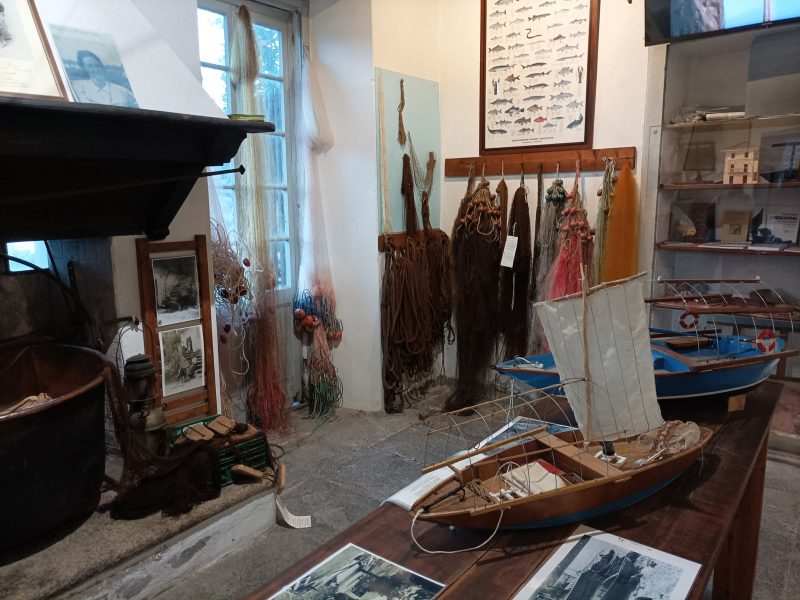Ex Casa Ugo Ara / Primary School / Fishing Museum
At the end of Via del Giardino, right on the lake, there is Casa Ugo Ara (1876-1936), the former house of a violinist who was a member of the famous quartet “Flonzaley” – founded in Geneva in 1904 and playing until the 1930s in New York and all the major Western cities – a friend of Arturo Toscanini and a writer (The Romance of the Borromean Islands). Left for will in 1934 to the islanders to host the Primary School (opened in the late 1930s), the three-story brick building had at the beginning of the century only two floors with a shaped façade, and probably served as “Tavern of the Islands” (according to a writing on the wall facing the lake, in an old picture with a “burchiello” on the shore), surrounded on two sides by a small garden.
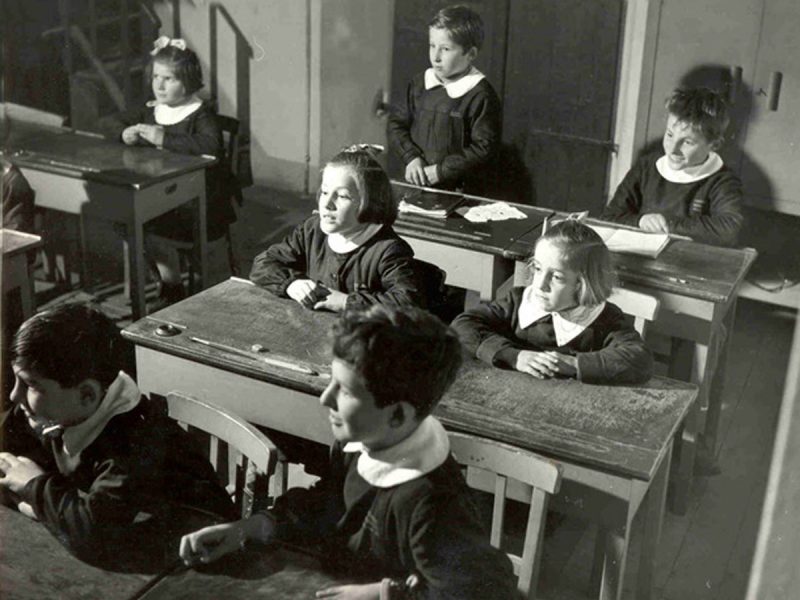
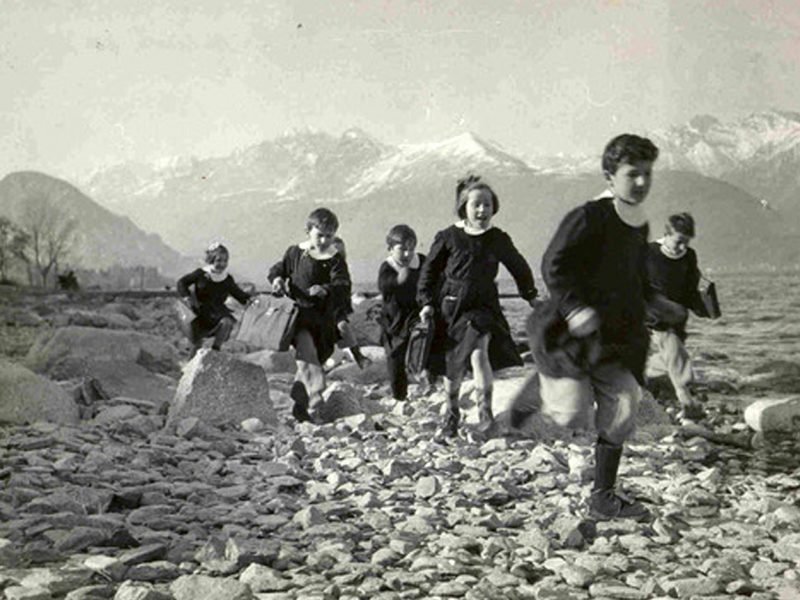
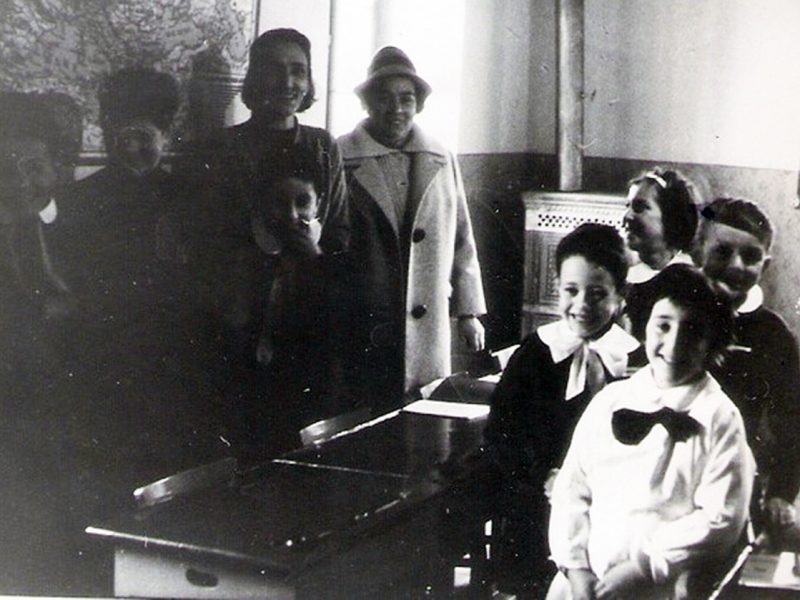
Acquired by Ara at the end of the 1920s, it was raised by one floor and enlarged by adding a small entrance porch on the ground floor (where there was the receiving room with the large fireplace), a small bathroom with a passageway on the first floor and an upper balcony for the most private area of the house, connected by steep overlapping wooden stairs. It is assumed that the external staircase leading to the first floor was made to allow the children access to the classroom, which was also connected by an internal staircase to the teacher’s housing on the second floor.
In 2016, the Pro-Loco Isola dei Pescatori, thanks to their volunteers and with the consent of the Municipality of Stresa, set up on the ground floor a small Fishing Museum, with materials and objects given by fishermen and other islanders and display panels realized by the Province of VCO and Magazzeno Storico Verbanese. Re-arranged in the context of an overall recovery of Casa Ugo Ara as the seat of the Ecomuseum, the Fishing Museum – complemented by a space on the first floor dedicated to the reconstruction of the old Primary School and another space on the second floor serving as Documentation Centre on the history of the island and its inhabitants – represents the legal and operational headquarters of the Ecomuseum of Fishing and Isola Pescatori.
